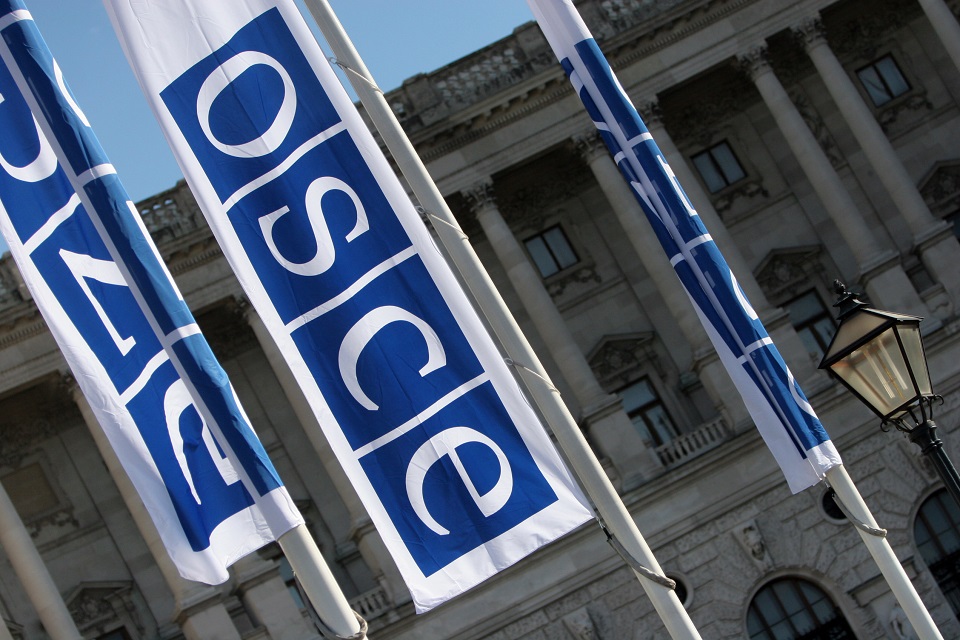Russia’s actions have left over 21.8 million people in humanitarian need: UK statement to the OSCE
Deputy Ambassador Brown commends UNHCR's work during this unprecedented year of humanitarian need, including in response to Russia's war against Ukraine.

Thank you, Mr Chair. On behalf of the United Kingdom, I would like to welcome Ms Gillian Triggs to the Permanent Council. Thank you for your insightful presentation. It is clear that the scale of the challenge is enormous. The United Nations High Commissioner for Refugees (UNHCR) has been an invaluable and steadfast partner during this unprecedented year of humanitarian need – on Ukraine, Afghanistan and most recently to respond to the devastating earthquakes across Türkiye and Syria.
I commend the leadership shown by UNHCR’s High Commissioner Filippo Grandi in supporting Ukraine. We have heard today of the sheer scale of the humanitarian need – but it bears repeating and digesting. During High Commissioner Grandi’s most recent visit to Ukraine he spoke of entire lives uprooted by senseless attacks on civilian infrastructure from power plants to water systems, even kindergartens damaged and destroyed. He spoke of children killed or being forced to flee their homes. Russia’s attacks overnight will have exacerbated the situation.
Russia’s illegal and barbaric invasion has sparked the largest forced displacement of people in Europe since WWII. The majority of refugees are women and children. Russia’s actions have left over 21.8 million people in humanitarian need – the numbers are almost unfathomable. Time and again, we see the devastating impacts of war borne by women and children, with an alarming increase in reports of all forms of gender-based violence. Despite clear codes of conduct we witness sexual violence being used as a weapon of war. ODIHR’s last report on IHL violations in Ukraine recalled accounts of sexual violence - rape of a group of women, attempted rape, forced nudity, threats of rape by members of the Russian armed forces during occupation in Kyiv and Kharkiv regions. We know that sexual violence can be seen as taboo. We know it is underreported and that survivors may refrain from speaking out due to trauma and fear of stigmatization. The protection work of UNHCR including the mobile services to support vulnerable communities in hard to reach areas is critical to supporting survivors to access the help they need.
Russia has flagrantly ignored almost all of its OSCE commitments under the Helsinki Final Act and under the human dimension. Calls to stop its military offensive and end the assault on innocent civilians go unheeded. We remain resolved to support Ukraine and its people. The UK’s humanitarian support has helped the response to reach over 13 million people. UK funding to UNHCR has helped over 4 million people fleeing the conflict, including with multi purpose cash assistance for nearly 1 million people. In June, the UK will co-host with Ukraine the Ukraine Recovery Conference to stimulate economic investment into Ukraine and build a better future for the Ukrainian people.
When faced with immediate and overwhelming humanitarian need at such scale we can mistakenly forget the importance of tackling the actual drivers of insecurity and displacement. In this case, Russia’s aggression against Ukraine. I commend the work of the OSCE’s autonomous institutions and their use of the OSCE toolbox to ensure prevention remains at the forefront of our minds and our work to help prevent further war in Europe.
Thank you Mr Chair.